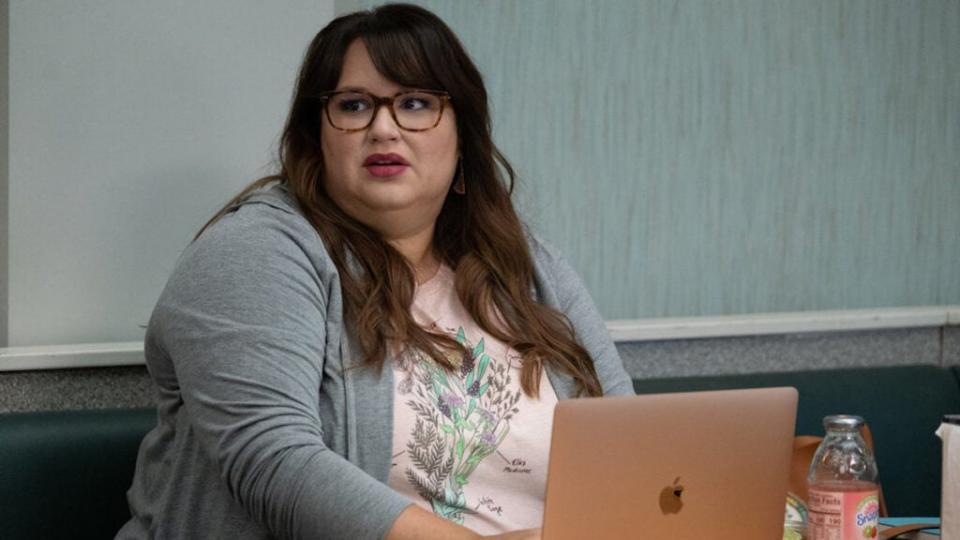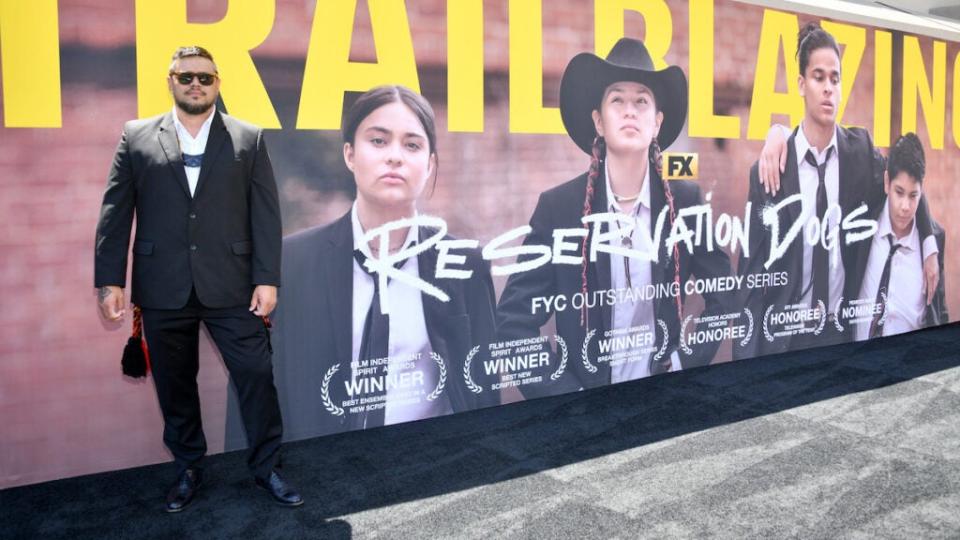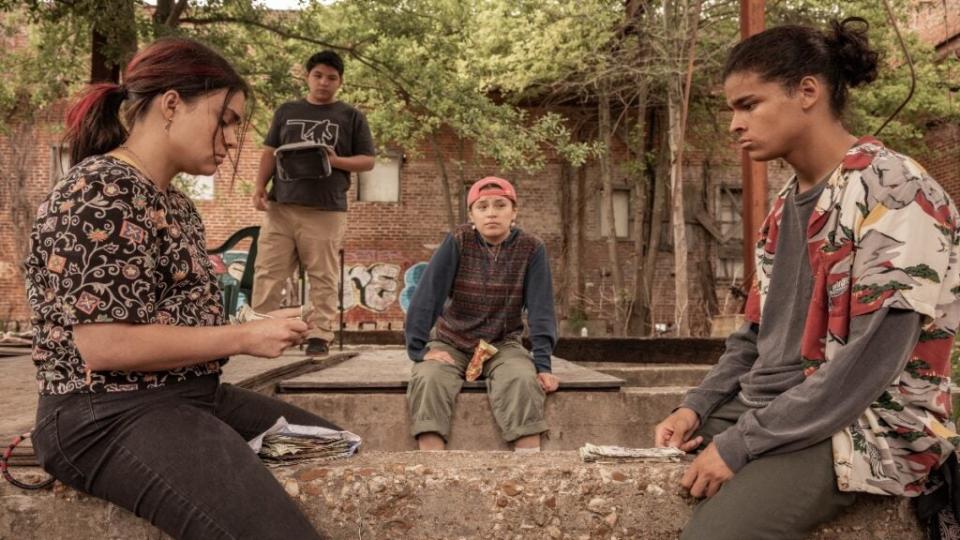A Wave of Native Representation on TV Is Rising – but It Faces an Unforgiving Media Market
- Oops!Something went wrong.Please try again later.
- Oops!Something went wrong.Please try again later.
- Oops!Something went wrong.Please try again later.
- Oops!Something went wrong.Please try again later.
It was the “worst first,” showrunner Sierra Teller Ornelas told TheWrap. “Rutherford Falls,” her sitcom about two friends at a crossroads, was the first Native American television show run by a Native person. But after Peacock canceled it last year after two seasons, she became “the first Native American to have their show canceled,” she said.
Along with Hulu’s “Reservation Dogs,” “Rutherford Falls” spearheaded a wave of Native TV shows at least partly created and written by Native creatives following decades of Indigenous invisibility and crude stereotypes.
That wave also includes Netflix’s “Spirit Rangers,” an animated fantasy series for preschoolers about three Native American siblings who can turn into animal spirits, and A&E’s “Dark Winds,” an adaptation of Tony Hillerman’s bestselling series of thriller novels based on a Navajo reservation. Marvel’s forthcoming “Echo,” a “Hawkeye” spinoff on Disney+, is also a Native-themed show using Native writers.
“Reservation Dogs,” whose third season is set to premiere in August, is the only TV show so far to feature all Indigenous writers and directors.
Also Read:
‘Reservation Dogs’ Co-Creator Sterlin Harjo to Develop FX Miniseries
“There is some progress to be made still but it’s definitely the most quantity we’ve ever seen and the highest quality we’ve ever seen when it comes to Native representation and television,” said Jessica McEver, director of pop culture and media at Illuminative, a Native woman-led social and racial justice organization.
But whether Native representation will continue to improve at an equal or greater pace is a question mark.
Teller Ornelas, a Navajo and Mexican American screenwriter, “couldn’t say” why Peacock canceled “Rutherford Falls,” but she said several factors may have led to its end, including the fact that Peacock “was a very new network” that was born during the pandemic.
“We were one of the first shows to go into production during the pandemic and that was such an erratic time, especially for streaming” networks, she said.

In addition to relatively few people using the new Peacock streaming service in 2021, “Rutherford Falls” was more cerebral than “Reservation Dogs” and thus attracted a smaller audience, said Liza Black, an associate professor of history and Native American and Indigenous Studies at Indiana University and a citizen of the Cherokee Nation.
“Rutherford Falls,” she added, “was asking questions about history, about presentation, about dating, about race… I just think it asked more of you.” Black said she was “so sad” when the show ended after two seasons.
She and Teller Ornelas weren’t the only ones heartbroken at the cancellation of “Rutherford Falls,” which starred Helms, Jana Schmieding and Michael Greyeyes.
“It felt like losing a family member,” said McEver, a Cherokee Nation member.
She said she loved seeing the show portray modern love stories and Native joy in a lighthearted and funny way, a contrast to the typical period piece or drama involving Indigenous characters.
The new wave of shows faces a harsh environment. Streaming services are canceling shows left and right — particularly if they don’t have what they consider to be a strong start, Black said.
“I think unless it just immediately gets both a quantitatively big audience and significant social media traction, they cut it, and I think that’s really frustrating to people,” she said.
But Teller Ornelas believes her team’s groundbreaking work makes it easier for the next Native person who comes along with a TV show.
She also contends that the cancellation of “Rutherford Falls” shouln’t be used as any kind of barometer for the future, since many shows today are not renewed for more than a season.
Also Read:
‘Rutherford Falls’ Creator on How Terry’s Casino Speech Avoids a ‘Monolith’ View of Native Americans
“I think if you look at my show, and ‘Reservation Dogs’ and a lot of the shows that are coming up, like ‘Echo,’ they’re so different, and they’re so varied because we have an infinite amount of stories to tell,” Teller Ornelas said. “And so, for me, it’s not so much about how long things last. It’s how long can we collectively keep this going?”
FX, which makes “Reservation Dogs” for Hulu, renewed the show last fall for a third season.
Shows like “Reservation Dogs,” “Rutherford Falls” and “Dark Winds” place Native creatives in positions of power to write their own narratives, McEver said. In addition, they are using Native consultants to help ground the shows in authenticity and tribal specificity, which helps eradicate “invisibility in a really interesting way.”
Also Read:
Which Networks and Streamers Are the Safest for New Shows – and Which Are the Riskiest? | Exclusive
The protests at Standing Rock, the taking down of dozens of Christopher Columbus statues and the collective response to the brutal 2020 killing of George Floyd by a Minneapolis police officer all helped thrust the BIPOC movement into the spotlight. That contributed to the progress seen in Native representation in the last few years, experts said. The longstanding efforts of Indigenous creatives to tell their stories and the need for new content to feed streaming services also played a role.
“2020 had all these executives scared to death” and eager to boost their anti-racist credentials, Indiana University’s Black said.
Between 2021 and 2022 TV seasons, Indigenous lead recurring roles increased 100%, according to Nielsen’s “Being Seen on Screen” report released in January. However, Native representation was still less than 1% of on-air roles across broadcast, cable and digital, according to the 2022 Hollywood Diversity Report.
Teller Ornelas recently sold a pilot for a workplace comedy/mockumentary called “City Indians” to NBC. She co-wrote it with two other Native artists, Bobby Wilson and Jackie Keliiaa.

“I’m really excited to see if we can find a home for that show because I think it’s sort of a progression of the Native comedy that I really enjoy making,” Teller Ornelas said, noting that she hopes to hear back from the network once the writers’ strike is resolved.
Meanwhile, “Reservation Dogs” co-creator and showrunner Sterlin Harjo still can’t believe the wild success of the FX show, which has earned a slew of nominations and awards.
The contemporary coming-of-age comedy about four Native teens on a reservation, loosely based on Harjo’s life growing up in rural Oklahoma, has earned a Peabody Award, a Gotham Award and a selection as one of the American Film Institute’s top 10 TV programs of 2022.

After decades of misrepresentation in the media, Harjo said, “Finally, Native people have something that really reflects the reality of our lives and people have responded to that — and luckily, not just Native people but people outside of that community also identify with it.”
Harjo said he’d love to create more seasons of “Reservoir Dogs” because he enjoys making the show with co-creator Taika Waititi. He also hopes to go out on their own terms, he said, and wrap it up when they “feel like the time is right.”
He also believes that what we’re seeing now with Native representation on TV is only the beginning. In addition to the zeitgeist of the time and the recognition that Indigenous people are facing significant challenges in the modern world, the success of “Reservation Dogs” is partly due to audiences looking for something new, he said.
“There’ve been people fighting for this for a long time and it was chipping away at a really big rock,” Harjo said. ‘We just made enough holes in that rock that we were able to break through.”

